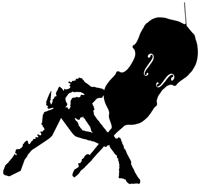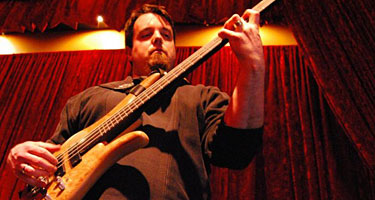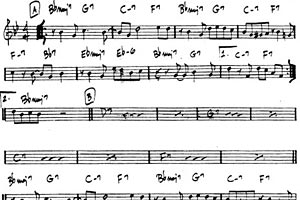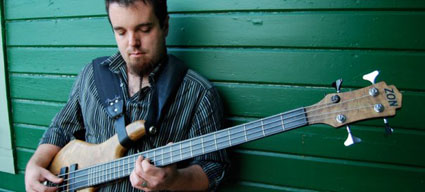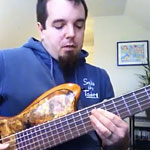Practicing Archives - Page 12
Improving Clarity: Left Hand/Right Hand Coordination
There are several reasons why a passage may sound sloppy. One of the more prevalent ones, however, is incorrect coordination between the two hands during passages of separate (i.e. not slurred) notes. For such passages, the fingers must completely stop the string before the right hand, or bow, articulates. While studying violin pedagogy with Mimi Zweig at Indiana University she...
ChordBot: A Look at the Songwriting and Accompaniment Tool for iOS and Android
ChordBot is a wonderful, easy to use app which is equally powerful for songwriting as it is for accompaniment. The app allows you to develop and play chord progressions in a number of styles. ChordBot features 60 different chord types (including slash chords), 50+ comping styles, a song generator, as well as the ability to export your files as midi,...
On Improvising: Modal vs. Chordal Approaches
Q: I’ve been playing for a little bit now and would consider myself a solid player, but I’m looking to really up my level of expression. There seems to be a dichotomy on modal vs. chordal approaches to theory, I figured I’d ask you where the break is. Both seem necessary, but some seem to think the modal stuff is...
Reading Requirements: Bass and Treble Clef?
Q: I can already read treble clef fairly instinctively, having played the clarinet for years. I started playing jazz (on bass) a few months ago, and now can find my way around most lead sheets, but my question is: should I bother to learn bass clef, when treble clef feels more natural to me? I rarely have a need to...
Dr. D’s Guide to Improving Your Walking Bass Lines
I regularly see students who are unhappy with their walking bass lines. Perhaps they don’t like how their lines lead (or don’t lead) from chord to chord. Perhaps they find themselves falling into predictable patterns over and over again. Perhaps their range is limited. Perhaps they just don’t find their lines satisfying. All of this can occur even when the...
Pacing Your Solos: A Guide to Improvisation
It is not uncommon for students of improvisation to approach their practice without a real plan. They simply start trying to improvise a solo, without really focusing on When, How or What to play, hoping things will simply get better over time. I was certainly guilty of this. It’s one reason I developed my expandable “Tune Treatment” mentioned in an...
Improving Your Sight Reading: A Guide to Better Reading on the Bandstand
Q: I’m at the point where I’m handling lead sheets better on gigs, but I sometimes get lost and/or second guess myself, usually resulting in me getting lost. Do you have any tips for becoming a good sight reader? A: Reading chord charts, and especially written notation, is one of the most useful tools you will develop as a working...
Let’s Talk About the Blues Scale
The Blues Scale. Why do so many players talk about this as the quintessential soloing tool? Have you ever wondered why the blues scale doesn’t always sound good while being played over a blues progression? Aren’t you looking for something more “realistic” in terms of an approach for soloing? Although this column is starting to sound like an infomercial proposing...
Getting Started with a Looper: A How to Guide
Q: I recently bought a looper after reading some of your columns. It’s for practicing, not for performing, but I’m stumped as to what I should actually do with it. Any thoughts on good (or bad) ways to use a looper for practicing? A: Good for you! Looping pedals are a wonderful tools for practice (or performance)! I’ll share some...
A Guide to Memorizing Tunes
Q: Do you have any tips on how to memorize tunes? I have the hardest time remembering tunes! A: I’ve been there. But a few years ago, I discovered the key: repetition, repetition, repetition, repetition, repetition, repetition… For years, I’ve always been a chart reader on gigs. I never understood how people could memorize so much music. Then one day...
Dedication: A Guide to Practicing
Recently I wrote to you about purposeful practicing. Purposeful practice can ensure that we are constantly solidifying our foundation and moving forward, both as an instrumentalist and a musician. However, creating a practice plan and schedule with intent is simply the first step. We must put this plan into action for it to be successful. The execution of a plan...
Practical Scalar Practice
Q: I’ve been reading a lot of posts online and doing searches about which scales work over what chords. I’ve found a lot of good information, but I’m not really sure how to actually practice and internalize the information once I have it. Any advice? A: This is something that I’ve been working on with my students at PSU (Portland...
